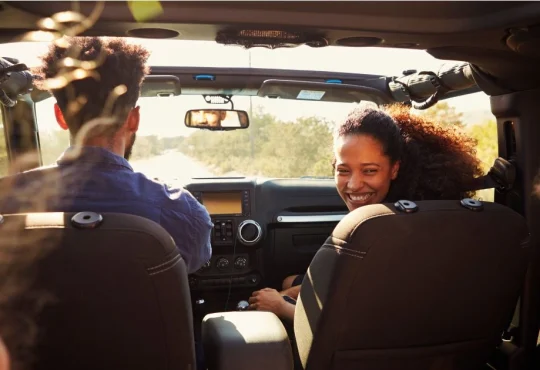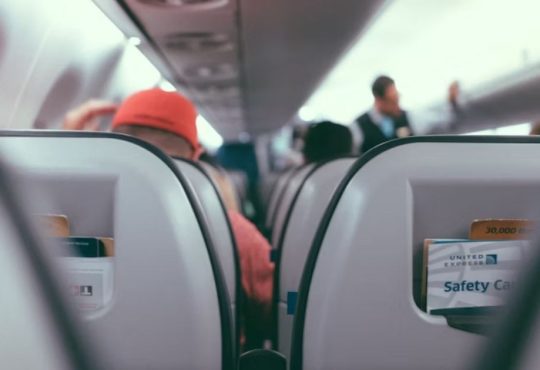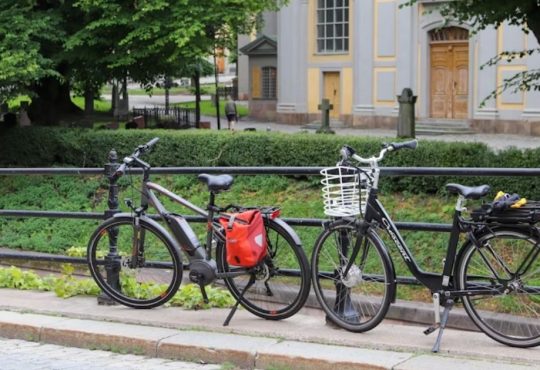Whether you’re jetting off to a new continent, road-tripping across the country, or hopping to a nearby city for the weekend, travel is one of life’s most enriching experiences. But let’s be honest: while Instagram-worthy sunsets and mouthwatering local eats are on your mind, safety might not always be at the top. Still, a little foresight can go a long way in ensuring your trip doesn’t turn into the plot of a cautionary tale.
This guide walks you through practical, proactive, and sometimes delightfully unexpected travel safety measures—because nothing is glamorous about having your phone stolen or your passport go missing in a foreign city. With some preparation, you can explore the world confidently and responsibly.
Expert Travel Safety Tips for Stress-Free Exploration
1. Do Your Homework Before You Go
Research is your first line of defense before you even zip up your suitcase. You wouldn’t jump into a pool without checking the depth, right? The same logic applies here.
Know the Local Laws and Customs
Each country has its own rules, both legal and cultural. What’s expected in your hometown might be offensive or illegal elsewhere. In some places, a simple gesture or article of clothing could land you in hot water.
- What to do: Read up on local etiquette, clothing norms, laws (especially around medication, photography, and alcohol), and even things like tipping culture.
- Pro tip: Save the emergency number for the country you’re visiting—112 for Europe, 911 for the U.S., 000 for Australia, etc.
Check Government Travel Advisories
Government websites often post travel warnings or alerts about unrest, weather disasters, disease outbreaks, etc.
- Where to look: U.S. citizens can check the State Department’s website. Other countries have similar portals. Bookmark them.
2. Keep Your Documents in Order (And Backed Up)
Leaving a passport behind on a train is a common travel mishap. Ensuring all critical paperwork is secure and organized is essential for a smooth journey.
Passport, Visas, and IDs
- Double-check your passport’s expiration date—it should be valid for at least six months beyond travel dates.
- Make sure you have the necessary visas for your destination. Some countries require visas even for layovers.
Make Digital and Physical Copies
- Scan your passport, visa, driver’s license, insurance cards, and any essential bookings.
- Email copies to yourself or store them securely in the cloud.
- Carry physical photocopies in a separate bag from your originals.
If your passport gets lost or stolen, these copies will save you stress at the embassy.
3. Pack Smart and Light
Your bag is your best travel buddy—until it’s not. Avoid overpacking, and bring only what you truly need. There’s elegance in being prepared and nimble.
Travel Light = Move Fast
The less you carry, the easier it is to keep track of your belongings and move quickly if needed.
- Use a luggage tracker for checked bags.
- Clearly label your bags with your contact information for easy iClearly ldentification.Keep essentials (passport, medications, cash, one change of clothes) in your carry-on.
Don’t Flash the Cash
That flashy designer backpack or blinged-out watch might scream “tourist with money.” Be low-key. Avoid carrying large sums of cash whenever possible.
- Use money belts or anti-theft bags with RFID protection.
- Break up your cash—keep some in your wallet, some in your luggage, and a small emrmation for easy identificationergency stash in a hidden pouch.
4. Stay Connected (But Securely)
Constant connectivity offers many benefits, but it also introduces significant security risks. The more connected individuals are, the more vulnerable they become to potential threats and breaches.
Use Secure Wi-Fi (Avoid Public Networks)
That free café Wi-Fi might seem tempting, but hackers love it too. Avoid logging into banking apps or entering personal info on public networks.
- Use a VPN (Virtual Private Network) to encrypt your data.
- Consider a travel SIM or portable hotspot if you’re abroad.
Share Your Itinerary
Let someone you trust know where you’ll be and when. Send them a copy of your flight and hotel bookings, and check in occasionally. It’s not paranoid—it’s smart.
5. Watch Your Health (Yes, Even on Vacation)
While sunburns and sore feet are common travel woes, maintaining health should remain a top priority, particularly when far from home. Staying vigilant about well-being ensures a safer, more enjoyable trip.
Vaccinations and Medications
- Check if any vaccines are required or recommended for your destination.
- Bring enough prescription medication for your whole trip, plus a few extra days, just in case.
- Always carry meds in their original containers with the prescription label.
Travel Insurance is Not Optional
Sure, it’s not glamorous, but travel insurance can be a lifesaver—literally and financially. Look for a policy that covers:
- Medical emergencies
- Trip cancellations
- Lost luggage
- Emergency evacuation
6. Keep Your Belongings Safe on the Go
In a bustling market, captivated by a street performer, an unzipped bag can be a target before it’s even noticed. It happens in an instant.
Invest in Anti-Theft Bags
These have lockable zippers, slash-proof straps, and hidden compartments. They are great for urban exploration and off-the-beaten-path adventures.
Don’t Keep Everything in One Place
Divide and conquer. Don’t put all your cash, credit cards, and ID in one wallet. If that goes missing, you’re in a tight spot.
- Keep a backup credit card in your hotel safe.
- Use dummy wallets with a few small bills for sketchy areas.
Trust Your Gut
It probably is if a situation feels off—too good to be true, overly pushy locals, or crowded distractions. Step away, stay calm, and move on.
7. Hotel and Accommodation Safety
A hotel room should be a sanctuary. Here’s how to keep it safe and secure.
Lock It Up
Use the deadbolt or security latch when you’re inside. If there’s a peephole, cover it when not in use.
- Keep valuables in the room safe.
- If your room doesn’t have one, ask reception if they can store items for you.
Know the Exits
This might sound overly cautious, but it’s wise to identify emergency exits when you first arrive. You’ll be glad you did in case of fire or emergency evacuation.
8. Stay Aware in Transit
Planes, trains, and buses are common spots for lapses in vigilance, often due to the relaxed atmosphere and focus on travel. Distractions like reading, napping, or chatting can make travelers easy targets for theft or scams. With the bustle of boarding and close quarters, losing track of belongings is easy. Staying aware and securing valuables is key to staying safe during transit.
Guard Your Belongings in Transit
Always keep your carry-on in sight. That means avoiding the overhead bin across the aisle or a few rows back—thieves have been known to reach in mid-flight.
- Don’t doze off with your phone or tablet out in plain view.
- If you’re taking long-haul trains or buses, secure your bags with locks or keep them where you can see them.
Don’t Overshare With Strangers
Chatting with fellow travelers is OK, but avoid sharing details like where you’re staying, whether you’re alone, or your next move. You never know who’s listening.
9. Blend In as Much as Possible
Blending in while traveling doesn’t mean mimicking locals but avoiding looking like tourists. Stay low-key by not standing out as a “human GPS”—constantly checking a map or wearing typical tourist attire. Opt for subtle, practical clothing that suits the area, helping you blend in and enjoy a more authentic, stress-free experience.
Dress Appropriately
Respect local dress codes and avoid tourist stereotypes (big cameras, socks with sandals, etc.).
- Look confident, even if you’re lost. Duck into a shop or café to check your map discreetly.
- Learn a few basic phrases in the local language—it shows respect and helps you navigate more smoothly.
Avoid Touristy Traps
Scammers target distracted tourists in high-footfall zones. Be cautious around “helpful” strangers offering directions, photo ops, or people staging an “accident” to distract you.
10. Have an Emergency Plan
A solid backup plan can be a game-changer when things are unexpected. Life is unpredictable, and situations can take an unexpected turn despite the best efforts. A backup plan offers peace of mind, ensuring no need to scramble when challenges arise. It provides a safety net, making it easier to stay calm, adapt quickly, and take the necessary steps to get back on track when things go wrong.
Know the Embassy Info
If your passport is lost or you find yourself in legal trouble, your country’s embassy or consulate is your lifeline.
- Save the contact info in your phone and write it down on paper.
- Many embassies can assist with emergency loans, medical evacuations, and legal resources.
Keep an Emergency Card
Please include your name, medical information, emergency contacts, blood type, allergies, and relevant conditions. You could keep it in your wallet or daypack.
Travel Smart: Safety First for Unforgettable Adventures
Traveling the world is a privilege, and while safety shouldn’t overshadow the adventure, being prepared ensures a memorable trip. Think of safety as your travel companion, keeping you protected while you explore new places. Whether you’re a first-time traveler or a seasoned globetrotter, the best souvenir is always staying safe. So, pack your bag, grab your passport, and don’t forget that anti-theft bag—because every adventure deserves a secure start.





